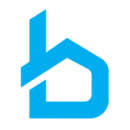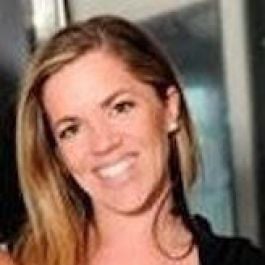
Changing careers isn’t for everyone.
It’s an uphill battle of company and industry research, countless meetups, dozens of cover letters and networking dates, competition with more experienced candidates, and rejection. And let’s not forget dealing with feelings of self-doubt and imposter syndrome along the way.
These six women from Boston tech shared why it’s worth it.
Everyone’s journey into a new career is different, but for many, it begins with acknowledging a lack of fulfillment in a role. Some women we spoke with felt like they weren’t working their true passion, while others wanted to experience new challenges in a different industry.
Luckily, starting a new career doesn’t have to feel like starting over. Being transparent with employers and networking connections can help build a community of support. As well, joining tech meetups or making online connections can lead to mentorship and job opportunities.
While hiring managers might notice a lack of tech experience on your resume, lean into past work experiences and describe how those skills can be applied to the current role. If you’re excited about a role, that’ll show through. On most job applications, passion is an unwritten requirement.
It can be hard not to overthink when moving from one career to another. Juliana Kang, a software engineer at edX, recommends channeling unproductive thoughts into determining how to best approach the next immediate step in making a career move.
Why Kang pivoted careers: I worked in the fashion industry for about eight years before deciding to make the career change. I transitioned into graphic design, then got involved with the startup scene in Brazil. Then I grew more interested in the coding side of projects as opposed to the design aspects. I took an online introduction to HTML and CSS course and fell in love. But leaving my job to study full time was a distant dream until I applied for a scholarship at Facebook to attend a 15-week coding bootcamp at Flatiron School.
I did not want to just get a job, I was looking for a company whose values I admired and where I could see myself growing as a professional for years to come. That’s how I ended up in Boston and at edX.
Never take a rejection personally.”
Biggest challenge: I went to a traditional university and had many internship experiences before getting my first job in NYC after graduating. Years of learning and experiences molded me into the professional I was. But in my new career as a software engineer, I found myself starting from zero and there was a lot of imposter syndrome. I had to learn to be gentler with myself and never take a rejection personally.
The bootcamp was the best experience of my life. They had a great career development team, but there is only so much knowledge someone can absorb in such a short amount of time. The job search was challenging and involved a lot of studying and practice on my own with online resources.
Advice: Don’t be afraid to fail. Failing fast is better than never trying and not knowing. Even if the career change does not work out as planned, at least an effort was made. It’s still possible to pivot from there.
Focus on taking the next best step as opposed to a massive jump to get to the other side. But take each small step with enthusiasm. And lastly, no amount of worry can change a future outcome. Use all the brainpower that would be allocated to overthinking to solve present problems instead.
Koryn Okey knew she wanted to make a career change. But in becoming the VP of client experience at Breezeway, the leader faced the challenge of channeling her extensive in-person relationship-building skills into remote work.
Why Okey pivoted careers: My leap into tech was accidental. I was ready to get out of publishing in 2008, and a friend suggested I look at an opportunity at a company called FlipKey. Leaving an established organization to join a startup was a hard consideration for me. I wondered whether I would be successful in a role I had no experience in and what my career path would look like. I had multiple conversations about these questions, but looking back, it was the best career decision I’ve ever made.
Before making a change, that person needs to advocate for themselves.”
Biggest challenge: It’s no exaggeration when I say I had zero experience in tech. I learned more in the first six months at that job than I ever expected. In prior roles, I worked local territories, which allowed me to have face-to-face meetings with clients and prospects to understand how their business could benefit from our product. One of the biggest challenges in the new role was identifying a way to build rapport with clients without meeting them face-to-face. This idea seems silly now, but this was a time long before the days of Zoom, when everything was done over the phone.
Advice: Changing paths is often uncomfortable, whether it’s entering a new industry, company or role. Before making a career change, I encourage people to think about what they’re looking for. Ask questions like “Have I outgrown my current role?” “Am I no longer inspired by the company I’m with?” “Am I looking for something completely new?” Before making a change, that person needs to advocate for themselves. They shouldn’t be afraid to communicate with management about what they’re looking for moving forward.
And jump in with both feet. Absorb as much knowledge as possible and admit when something isn’t entirely understood. This realization demonstrates self-awareness and a commitment to learning the new subject matter. It often motivates the trainer to help the trainee in a new role be even more successful.
Wistia Strategic Partnerships Manager Kristen Bryant said a conversation over coffee with a stranger can change a person’s life. Bryant had a coffee meeting with a tech professional she had never met before, but that person’s insight helped her determine her ideal career path.
Why Bryant pivoted careers: I made the switch to tech in 2017. Prior to that, I worked at a mission-driven organization focused on leveraging technology to improve financial health outcomes.
As I considered a change, I knew that I was most excited by projects that involved collaborating with our tech design and development partners. I was eager to do more project scoping and lead the creation of digital experiences. I just didn’t have a clue what roles would be a fit for me since I didn’t have technical training.
Researching roles and learning more about the tech community in Boston was key. I did a lot of online searching and met with people in my network, but the most helpful conversation I had was with a complete stranger. I sent a cold email to a small but growing tech company in the financial space. The chief product officer agreed to grab coffee, and while he didn’t have a role for me, his insights and feedback led me to pursue product management roles.
Imposter syndrome creeping in won’t serve anyone.”
Biggest challenge: Expanding my network in my new industry was a challenge. I went from knowing the key players and reputable brands in one space to figuring that out in another. At the time, I’d been in Boston for four years, but my network did not reflect that and I didn’t know people at comparable tech companies. So, I attended a lot of meetups, became more active on LinkedIn and asked co-workers for introductions. I also sought out affinity groups that support women and people of color in tech.
I also faced a change in language and technical skills, and I leaned on my team a lot for this. As a career-switcher, I think it is important to acknowledge what a person does and doesn’t know. Asking for help doesn’t mean incompetence; it shows an eagerness to learn and acclimate to a new industry or role. Once the job is secure, a person has to believe they’re the best individual for it. Imposter syndrome creeping in won’t serve anyone.
Advice: I encourage people to find communities for professionals in their new role or industry and talk to others about their career shift. Communicating can feel scary and requires vulnerability, but it opens so many doors. People will start mentioning helpful things and it’s easy to see who is willing to help.
It can also be helpful to write a draft of a dream job description to use in informal conversations. Reflect on what you like and don’t like about your current role and what you’d like to continue doing in the future, which can be helpful for both external and internal opportunities. Be honest about your strengths, passions and career vision so others will have clarity on what you bring to the table, regardless of prior experience.
Stacie Justice employed a number of tools to decide that taking a role as iZotope’s head of people ops was the right move for her. She used everything from talent optimization software offered by Predictive Index to scratch paper and a pen to describe her dream job.
Why Justice pivoted careers: I knew I wanted to be in a role of power to advocate for people inside companies, but I didn’t know the best industry or role. To bring some intentionality to my decision, I laid out what I wanted on paper and spoke to everyone I could that had experience guiding career paths. Based on their advice, I realized I needed to play to my strengths. I was a connector and the tech industry fit my skills best perfectly.
People operations was the role that would allow me to help companies succeed by playing to my desire to impact the human experience in the workplace. Using tools such as Strength Finder or Predictive Index can be an instigator to thinking through a career change.
I had to learn the lexicon and the unspoken norms quickly.”
Biggest challenge: I didn’t grow up in a household with people highly skilled at ‘business speak’ or who knew how to navigate company politics. I had to learn the lexicon and the unspoken norms quickly. I needed to feel comfortable with these aspects to sell ideas to other business leaders and have the impact necessary in my role. It’s essential to get comfortable hearing your own voice rise above the chatter. Even if the most academic or Harvard Business School-esque way to say something is never discovered, say it anyway.
Professionals need to constantly remind themselves that they belong in the room even when they feel like they’re from another planet sometimes. And when it’s determined that everyone experiences similar thoughts, it makes the playing field feel leveler.
Advice: Start by collecting data. Talk to people who can provide important insights and guidance. Explore companies on all the available mediums. Look at virtual meetups and join informational conversations. Sometimes the best company or career for a person won’t be the one that’s continuously boasting on LinkedIn or paying for slick marketing campaigns. There are a lot of hidden gems out there. Once something is found that seems like a fit, take a chance and experiment, even if it feels uncomfortable.
Staying up at night because of office happenings usually isn’t a good sign. But it actually helped Lauren Herman, senior VP of people and talent, determine that she wanted to take on a more people-focused role at Jobcase.
Why Herman pivoted careers: During my tenure since joining Jobcase in 2014, I’ve been driven by two things: making an impact by solving problems I’m passionate about and changing the lives of our members.
In 2019, as acting senior VP of engineering, I rolled out our first-ever career-pathing process. I saw a positive impact when people had a clear career trajectory. Other departments adopted the same idea with similar results. Soon, I discovered that what was keeping me up at night was thinking about solving problems in the people development space company-wide.
To determine if this was a good direction for my career, I took some key steps. First, I spoke to my CEO and others on the leadership team. Then I consulted mentors from previous companies and schools and engaged other leaders in the people space. Next, I listened to podcasts and read a lot. All of these acts helped me solidify my decision that this move was right for me.
It’s important to climb the learning curve fast.”
Biggest challenge: Jobcase employees were very supportive of my change. I worked with and led many folks who understood my leadership style and my passion for the company. That said, when starting something new, especially in a fast-paced environment, it’s important to climb the learning curve fast.
I started my current role in January of 2020. Then the coronavirus hit and I was leading our company through a shift to working from home and other changes as a result of that crisis. But I have always enjoyed steep learning curves and am comfortable failing fast, so I find these challenges energizing.
Advice: Follow a passion. People should ask themselves what motivates them to go the extra mile, what keeps them up at night and what gets them excited each morning. They should reflect on what they’re most proud of.
Knowledge is power. Make an informed decision by consuming as much information as possible. And learn from every experience, even the ones that don’t go well. Sometimes learning what a person doesn’t like is more important than learning what they do like.
Fiona Wu tapped into her extensive professional network while making a career change. Not only did she use the expertise of those around her to find her ideal job, she also sought out the knowledge of her new team members at Dawn Foods Innovation Hub while onboarding as the digital product manager.
Why Wu pivoted careers: I was looking for a career where I could make an impact within my team and on projects. First, I reflected on what my passion was so I knew where to start looking for new opportunities. Then, I reached out to people I knew or worked with to understand more about the companies that I was interested in. I asked about the company culture and the projects to make sure my passion and career goals lined up with the new opportunities.
Make a brave change.”
Biggest challenge: The Dawn Digital team works in a fast-paced environment, which I very much enjoy. During the onboarding process, I spoke to everyone on my team to understand things like project status, scope and timeline. I also used Jira and Confluence to collect knowledge and get myself up to speed.
Advice: Understand what work you enjoy the most, conduct extensive research and network for new opportunities and companies. And most importantly, make a brave change.


















